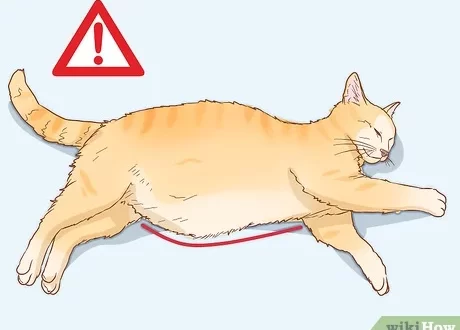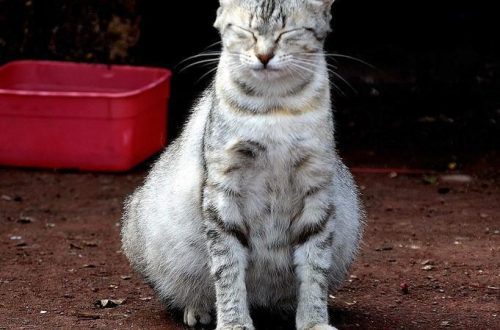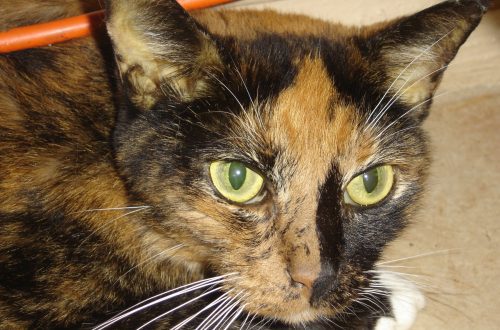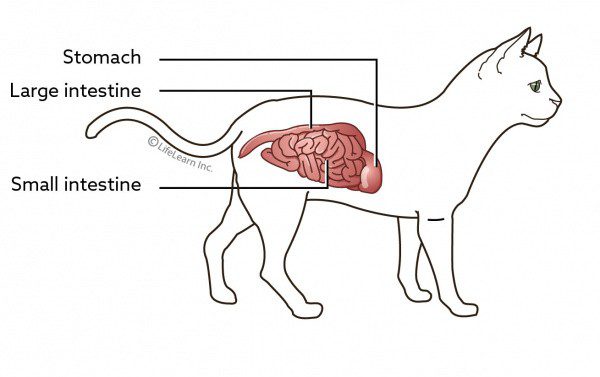
Gastritis in cats
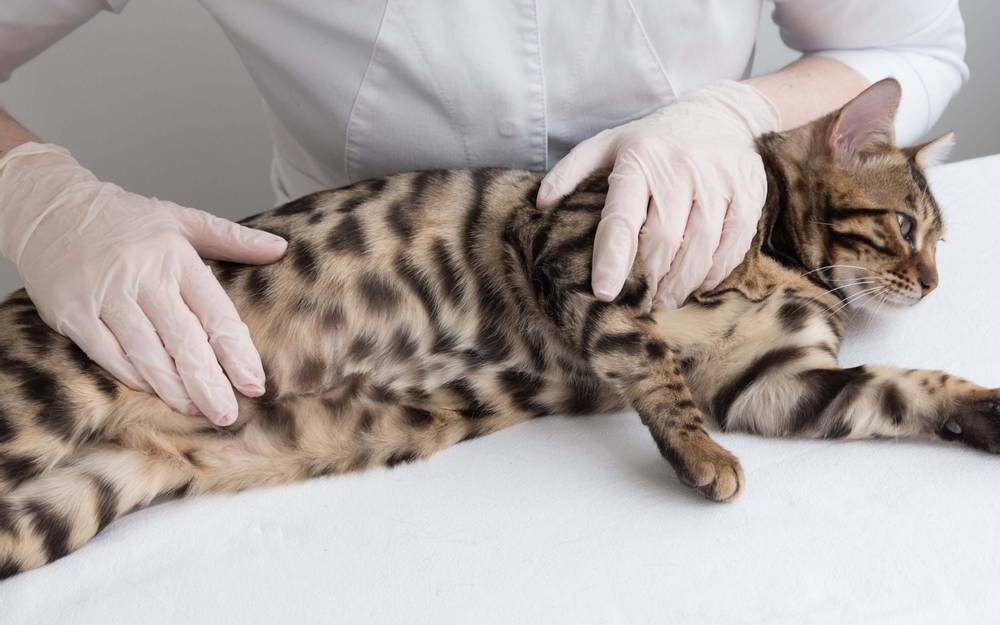
Contents
Types of gastritis
Gastritis in cats has different classifications. He can be:
Acute or chronic, depending on the duration of the disease and the severity of the symptoms;
Primary (independent disease) or secondary (as a complication in other pathologies);
Diffuse (the entire wall of the stomach is affected) or focal (a certain part of the organ is affected);
Hemorrhagic (with bleeding of the inner wall of the stomach);
Erosive (with the formation of erosion);
Ulcerative (with the formation of ulcers);
Necrotic (with tissue death), etc.
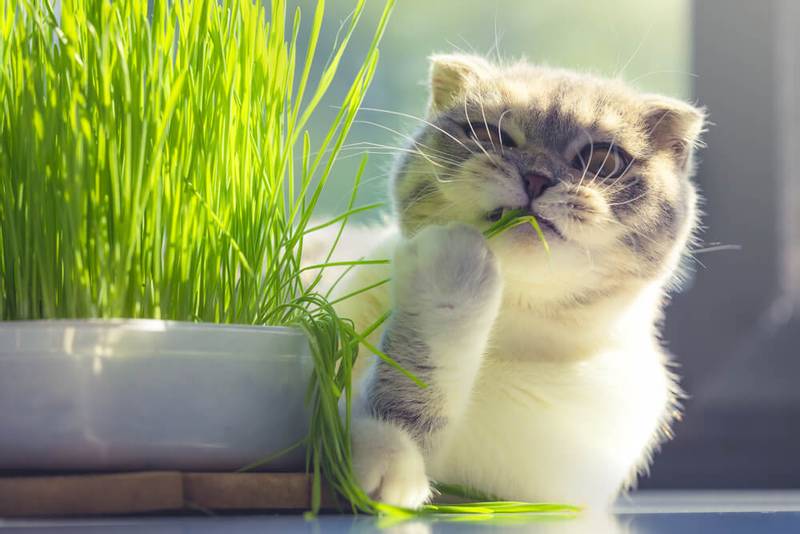
Causes of the disease:
Feeding errors. Unbalanced diet, high content of food that is difficult to digest (products from the table, excess spices, fried foods), stale foods (spoiled food, food leftovers from the trash or on the street), food that is too cold or hot, abrupt change in diet, overeating;
Food intolerance (allergic and non-allergic nature);
Infections;
Taking medication. Long-term use of drugs of the GCS group and NSAIDs can provoke the development of gastritis. Some human drugs from the NSAID group are contraindicated in animals even for a single use (for example, ketorol, ibuprofen, diclofenac, indomethacin, paracetamol, etc.);
Complication of other diseases. Gastritis in cats often occurs in combination with other diseases of the gastrointestinal tract (gastroenterocolitis, IBD, pancreatitis, cholecystitis, etc.). It can also develop against the background of many systemic diseases (CKD, hyperthyroidism, diabetes, stomatitis);
Helminths and protozoa;
Foreign objects in the stomach. Wool, accidentally eaten food packages, threads, pieces of toys, hair ties;
Stress. Some cats refuse to eat due to stress, which is dangerous for their health;
Poisoning. Reagents on the roads, household chemicals, pesticides, building materials, cosmetics, various plants. Do not forget that the cat is constantly licking, and if it gets dirty (for example, in paint), then it will lick it off;
Neoplasms. Tumors can occur both in the stomach itself and in neighboring organs;
secretion disorders. They can be both congenital and against the background of other diseases or when taking certain medications.
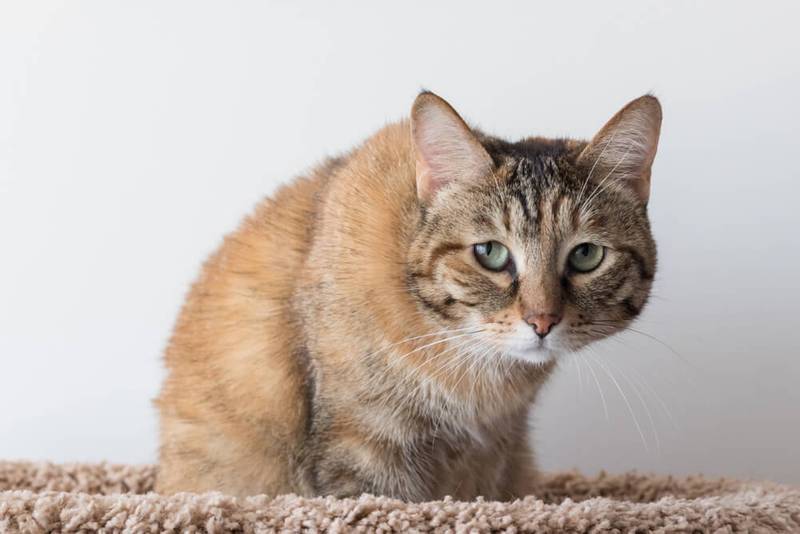
Symptoms of gastritis in cats
Gastritis in cats can manifest itself in different ways. The symptoms to watch out for are:
Oppression. The first sign may be a decrease in activity, attempts to hide in secluded places, refusal to play;
Decreased quality of leather and wool. The coat is dull, disheveled;
Change in appetite. Decreased rate of eating or volume of food eaten;
Bad breath;
Weight loss, slimming;
Increased salivation, frequent swallowing (a symptom of nausea);
Vomit. In a chronic course, the symptom may either appear or resolve on its own;
Pain. The pet moves carefully and slowly, stoops, looks for a comfortable position for a long time, meows more often, the stomach is hard. The pain may not be acute or may occur in periods, then the pet will either show signs of pain, or behave as usual;
Chair change. With gastritis, there can be both diarrhea and constipation. It is also worth paying attention to the volume and color of the chair. Normal stools are brown. If you notice that the stool has become black, green, white, or the volume of the stool has increased, then you need to see a doctor.
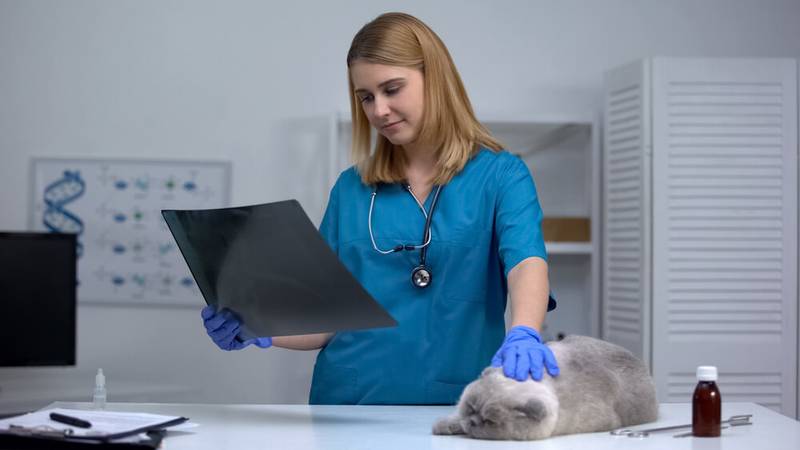
Diagnostics
Doctor visit. He will take a detailed history and conduct a thorough examination;
US abdominal cavity;
Blood tests. It is important to mention that there is no specific indicator that indicates inflammation of the stomach. However, blood tests are needed to identify concomitant pathologies (pathologies of the kidneys, liver, pancreas, etc.);
Gastroscopy. The procedure is performed under sedation and is a very informative research method. During the study, you can immediately take the material from the wall of the stomach or remove a foreign object;
Biopsy. Required in some cases, with severe long-term gastritis or suspected tumor processes;
X-ray with contrast agents. It is required in some cases to assess the patency of the gastrointestinal tract, the presence of extensions, diverticula, foreign objects.
Treatment of gastritis in cats
The selection of the correct treatment option for gastritis in cats depends on the causes of the disease, comorbidities and complications. Main options:
Diet correction. Ready-made feeds are prescribed or an individual diet is drawn up;
antiemetic drugs;
Antacids of local action. They are also “enveloping”, to relieve irritation from the stomach wall and change the acidity of the stomach. Some of the preparations contain anesthetics, thereby relieving the symptoms of stomach pain;
Gastroprotectors. H-2 blockers of histamine receptors or proton pump inhibitors. To reduce the secretion of gastric juice;
Enterosorbents. Necessary for binding and safe removal of toxic substances from the gastrointestinal tract;
Droppers with electrolyte solutions for dehydration;
antibiotics;
Antiprotozoal;
Antihelminthic;
Antispasmodics.
For gastritis in cats, antidepressants, B vitamins, pro- and prebiotics can be additionally prescribed. With the autoimmune nature of the disease, corticosteroids, immunosuppressants can be prescribed. With obstruction or tumor processes, surgical intervention cannot be avoided.
What to feed a cat with gastritis?
The most important – easily digestible ingredients, fractional feeding, warm food, wet rations. Fractional feeding is recommended, every 2-4 hours.
If the pet is accustomed to industrial diets, then you need to transfer it to special feeds with protein hydrolyzate. Protein in such diets is digested much easier and, accordingly, does not linger in the stomach and intestines, and also does not provoke the processes of food decay.
How to feed a cat with gastritis, if he is used to eating home-cooked diets? It is important to give preference to proteins with a high content of arginine, glutamine, glycine and lysine (seafood, eggs, cottage cheese). If a food intolerance is suspected, an elimination diet may be recommended, meaning that only one protein source will be left. Regarding carbohydrates, you need to limit the intake of non-fermentable fiber, the carbohydrates themselves should also be easily digestible (corn, rice, wheat, barley). Fats in the diet should be limited as much as possible. And the daily need for fats is replenished by saturated fats (fish oil, sunflower oil, avocado).
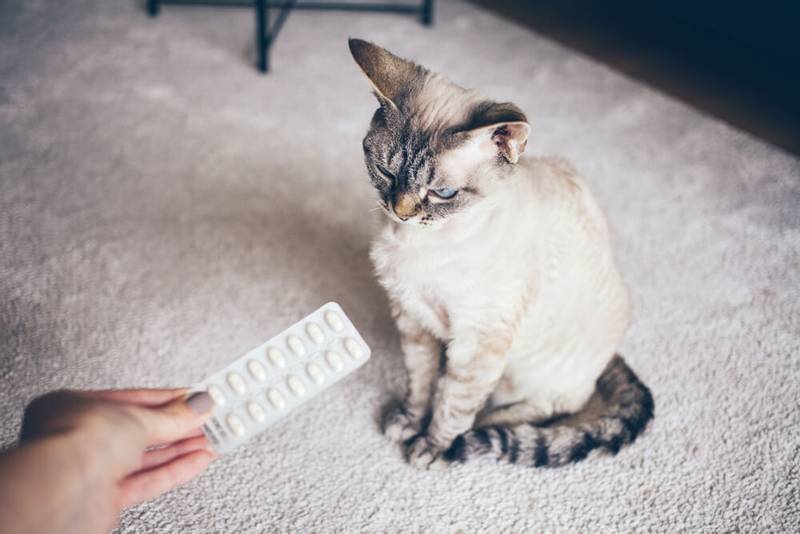
Prevention
In order not to have to treat gastritis in a cat, it is important to know how to prevent it:
Proper feeding schedule. Do not give your pet something from your table. The number of feedings should be individually selected. Food should not be too hot or too cold, and of course it should be fresh;
Prevention of poisoning. It is necessary to hide all household chemicals, cosmetics, all kinds of perfume additives, oils, medicines, etc. from the pet. The pet, of course, will not lick the floor after you have washed it with bleach, but it will pass through it and then will definitely lick its paws , so rinse off such substances from the floor after cleaning. Indoor plants must also be removed in places inaccessible to the pet;
Remove all small items. Cats often swallow packages, threads, ropes, etc. in the game;
Do not self-medicate. There are a number of drugs intended for humans, but contraindicated in cats. And those drugs that are shown to cats can be prescribed in a different dosage than to humans;
Prevention of infections and invasions. Regular vaccination. Timely treatment for parasites. Thermal processing of products of animal origin. Restriction of access to the street;
Timely visit to the veterinarian. If there is the slightest suspicion of deviations in the well-being of the pet, you need to contact a specialist in order to start treatment on time.
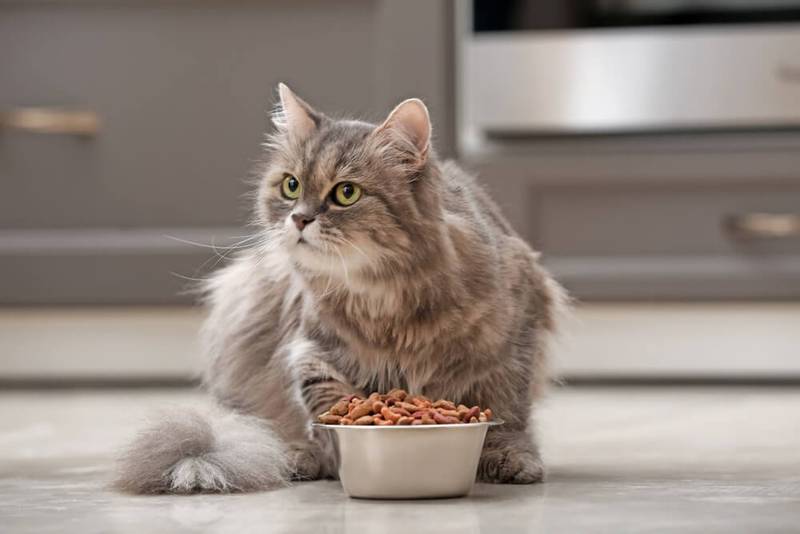
Gastritis in Cats: Essentials
Gastritis in cats is a very common disease that requires immediate medical attention.
The most common causes of the disease are violation of the feeding regimen, medicines and toxins, infections and infestations.
Diagnosis of gastritis consists in a thorough examination of the doctor and the collection of anamnesis, ultrasound, blood tests, gastroscopy.
Treatment of gastritis in a cat depends on the severity of the symptoms, the cause of the onset, and many other factors. So, for example, the treatment of uremic gastritis in cats should be aimed at eliminating the symptoms of azotemia (droppers, electrolyte correction, diet).
If you still had to deal with this disease, do not neglect the recommendations for feeding. Diet therapy for diseases of the gastrointestinal tract is 70% of successful treatment.
Prevention of gastritis consists in a few simple measures: a balanced diet, regular vaccination and treatment against parasites, preventing the pet from eating spoiled food, chemicals, and inedible objects.
The article is not a call to action!
For a more detailed study of the problem, we recommend contacting a specialist.
Ask the vet
October 30 2020
Updated: February 13, 2021



